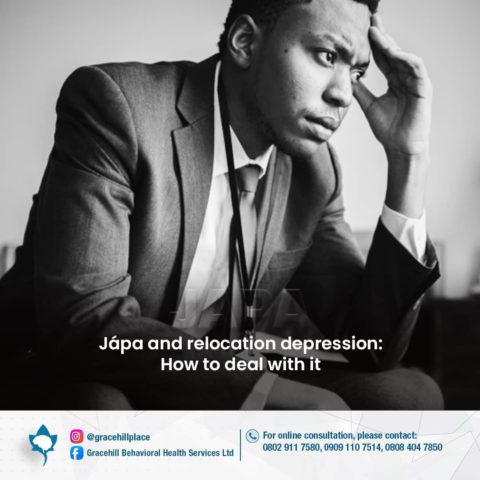1 year ago · GBHS · 0 comments
Relocation Depression: How to deal with it

Relocating to a new place can be an exciting experience. It can also be a challenging one, especially if you’re leaving behind friends, family, and a community that you’ve grown to know and love. One potential consequence of relocation is what’s known as “relocation depression.” This is a form of depression that can occur when someone is struggling to adjust to their new surroundings and environment.
There are a few key factors that can contribute to relocation depression. One is the sense of loss that can come with leaving behind the familiar. When you move to a new place, you’re leaving behind the people, places, and routines that have become a part of your life. This can be especially hard if you’re moving away from close friends or family members, or if you had a strong sense of belonging in your previous community.
Another factor that can contribute to relocation depression is the stress and uncertainty that often come with making a major change. Moving can be a logistical nightmare, with all of the packing, organizing, and coordinating that needs to be done. It can also be financially stressful, especially if you’re moving to an area with a higher cost of living. And once you arrive at your new location, you may feel overwhelmed by the need to find a place to live, set up utilities, and get your bearings in a completely unfamiliar place.
There are a few things you can do to help mitigate the impact of relocation depression. One is to try to stay connected with the people you’ve left behind. This can be as simple as sending regular emails or texts or using video chat to stay in touch. You might also consider joining a club or organization in your new community, or finding ways to volunteer or get involved in local events. This can help you build a sense of belonging and connection in your new surroundings.
It’s also important to take care of yourself during the relocation process. Make sure you’re getting enough sleep, eating well, and getting regular exercise. It can also be helpful to set small, achievable goals for yourself as you adjust to your new environment. This can help you feel a sense of accomplishment and progress as you get settled in.
Finally, don’t be afraid to reach out for help if you’re struggling. If you’re feeling overwhelmed, depressed, or anxious, it’s important to seek support. This could be through talking to a friend or family member, seeing a therapist, or joining a support group. Remember, you’re not alone, and there are people and resources available to help you through this transition.
In conclusion, relocation depression is a common and understandable response to the challenges of moving to a new place. By staying connected with loved ones, taking care of yourself, and seeking out support when needed, you can successfully navigate this transition and find happiness in your new home.
.
.
At Gracehill Place, we offer virtual consultations. So, you can book an appointment with a therapist from wherever you have relocated to and get the support you need.
Call +2348084047850 or +2348029117580
PS: Japa is Nigerian slang. Part of what is now called the Naija urban dictionary. Japa is originally the Yoruba language for flee or run away but has gained usage in Nigeria (Naija) as a word for relocating abroad. e.g; japa from Naija to Canada.



